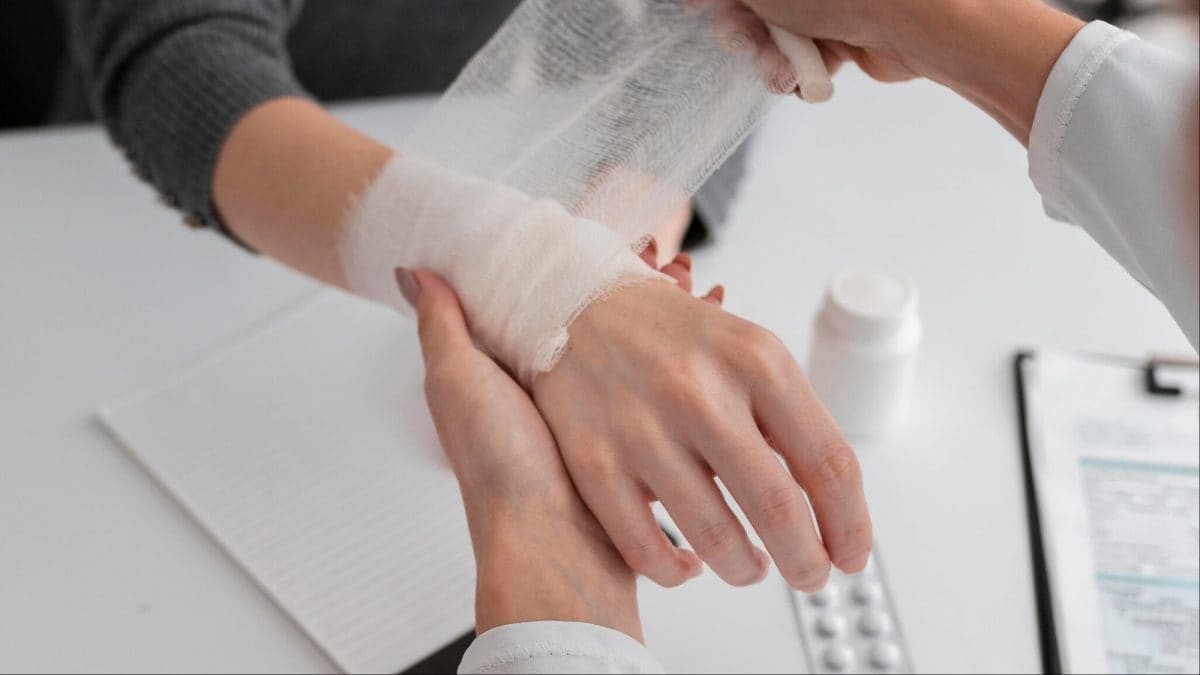Last Updated:
A wound that refuses to heal could be the first sign of a hidden problem, and prompt intervention can make all the difference.

Chronic wounds can indicate poor circulation, diabetes, or compromised immunity.
Most wounds heal naturally with basic care, but when a wound refuses to close or remains inflamed for weeks, it’s a signal that something deeper may be going wrong. Chronic wounds, medically defined as those that fail to progress through the normal healing stages, can indicate issues ranging from poor blood circulation and diabetes to compromised immunity. In rare cases, persistent wounds may even hint at underlying malignancy.
Why Persistent Wounds Shouldn’t Be Ignored
“Most people tend to ignore persistent wounds or continue treating them with repeated dressings and antibiotics,” says Dr. Shraddha Deshpande, Consultant – Plastic, Reconstructive and Aesthetic Surgeon at Wockhardt Hospitals, Mumbai Central. She explains, “If a wound doesn’t heal despite proper care, it is always wise to investigate further. Sometimes, it’s more than skin-deep. A timely biopsy or deeper evaluation can completely change the course of treatment and even save lives.”
Warning signs that require medical attention include persistent pain, swelling, redness, recurrent discharge, and difficulty in movement near the affected area. Ignoring these can delay diagnosis and worsen outcomes.
Investigating the Root Cause
Doctors typically use a combination of imaging, cultures, and tissue biopsies to identify the underlying problem. Chronic wounds may arise from repeated infections, inadequate blood supply, diabetes-related complications, or weakened immune responses. In certain cases, they may be the first indicator of a malignancy, making early evaluation critical.
Advanced Management Strategies
Once the root cause is identified, treatment options vary depending on severity and aetiology. These may include advanced wound dressings, infection control measures, surgical excision, or reconstructive procedures to restore function and prevent further complications. “Management is most effective when the underlying disease is treated alongside the wound itself,” notes Dr. Deshpande.
At Wockhardt Hospitals, a chronic wound that persisted despite antibiotics revealed a relapse of lymphoma upon deeper investigation, underscoring the importance of timely evaluation.
Chronic wounds not only affect physical health but can also impact mobility, daily activities, and quality of life. Persistent inflammation may increase the risk of secondary infections, while untreated underlying conditions can progress silently. Early consultation with a specialist can guide the right combination of medical, surgical, and lifestyle interventions. Patients are also advised to maintain optimal nutrition, manage chronic conditions like diabetes, and monitor the wound regularly for any changes.
- Location :
Delhi, India, India







